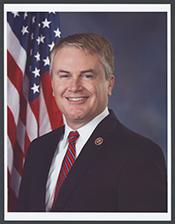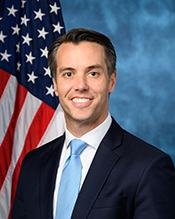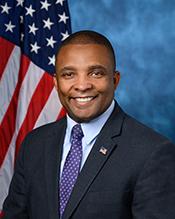0
0
0
Health Care Workforce Investment Act
12/19/2024, 9:05 AM
Summary of Bill HR 9812
Bill 118 hr 9812, also known as the Health Care Workforce Investment Act, is a piece of legislation currently being considered by the US Congress. The main goal of this bill is to address the growing shortage of healthcare workers in the United States by investing in training programs and educational opportunities for individuals interested in pursuing careers in the healthcare field.
The bill proposes several key initiatives to achieve this goal. First, it seeks to increase funding for scholarships and grants for students pursuing degrees in healthcare-related fields, such as nursing, medical assisting, and allied health professions. This funding would help alleviate the financial burden of pursuing a healthcare education and encourage more individuals to enter the field.
Additionally, the bill aims to expand and improve existing healthcare workforce training programs, such as those focused on primary care and mental health services. By investing in these programs, the bill seeks to ensure that healthcare workers are adequately trained and equipped to meet the diverse needs of patients across the country. Furthermore, the bill includes provisions to support the recruitment and retention of healthcare workers in underserved communities, where the shortage of healthcare professionals is particularly acute. This includes incentives for healthcare providers to work in rural and urban areas with limited access to care, as well as funding for programs that promote diversity and inclusion in the healthcare workforce. Overall, the Health Care Workforce Investment Act is a comprehensive piece of legislation that aims to address the critical shortage of healthcare workers in the United States. By investing in education, training, and recruitment initiatives, the bill seeks to ensure that all Americans have access to high-quality healthcare services, regardless of where they live.
The bill proposes several key initiatives to achieve this goal. First, it seeks to increase funding for scholarships and grants for students pursuing degrees in healthcare-related fields, such as nursing, medical assisting, and allied health professions. This funding would help alleviate the financial burden of pursuing a healthcare education and encourage more individuals to enter the field.
Additionally, the bill aims to expand and improve existing healthcare workforce training programs, such as those focused on primary care and mental health services. By investing in these programs, the bill seeks to ensure that healthcare workers are adequately trained and equipped to meet the diverse needs of patients across the country. Furthermore, the bill includes provisions to support the recruitment and retention of healthcare workers in underserved communities, where the shortage of healthcare professionals is particularly acute. This includes incentives for healthcare providers to work in rural and urban areas with limited access to care, as well as funding for programs that promote diversity and inclusion in the healthcare workforce. Overall, the Health Care Workforce Investment Act is a comprehensive piece of legislation that aims to address the critical shortage of healthcare workers in the United States. By investing in education, training, and recruitment initiatives, the bill seeks to ensure that all Americans have access to high-quality healthcare services, regardless of where they live.
Read the Full Bill
Current Status of Bill HR 9812
Bill HR 9812 is currently in the status of Bill Introduced since September 25, 2024. Bill HR 9812 was introduced during Congress 118 and was introduced to the House on September 25, 2024. Bill HR 9812's most recent activity was Referred to the Subcommittee on Health. as of December 17, 2024
Bipartisan Support of Bill HR 9812
Total Number of Sponsors
2Democrat Sponsors
0Republican Sponsors
2Unaffiliated Sponsors
0Total Number of Cosponsors
2Democrat Cosponsors
2Republican Cosponsors
0Unaffiliated Cosponsors
0Policy Area and Potential Impact of Bill HR 9812
Primary Policy Focus
HealthAlternate Title(s) of Bill HR 9812
Health Care Workforce Investment Act
Health Care Workforce Investment Act
To direct the Secretary of Health and Human Services to award grants to States to establish, increase the availability of, and improve access to, qualified health care programs to increase and strengthen the health care workforce in such States.
Comments

Arjun Gray
481
1 year ago
I think this bill is good for us old folks like me. It will help with the doctors and nurses we need. But why are some people against it? Don't they see how important this is for our health? #confused

Winona Weaver
497
1 year ago
I don't like it, it affects everyone.

Roman Spencer
424
1 year ago
This bill is a joke. How will it actually improve healthcare workforce shortages?

Nayeli Jiang
535
1 year ago
This bill is gonna help us with our healthcare workforce, but I'm not sure how exactly. It's important to invest in our healthcare workers, but this bill seems a bit confusing. I hope it ends up being beneficial for all of us in the long run.

Corbin Mayo
422
1 year ago
This bill is gonna change everything for healthcare workers. How will this affect me in the short term?
Sponsors and Cosponsors of HR 9812
Latest Bills
Providing for congressional disapproval under chapter 8 of title 5, United States Code, of the rule submitted by the Bureau of Land Management relating to "Central Yukon Record of Decision and Approved Resource Management Plan".
Bill HJRES 106December 12, 2025
Providing for congressional disapproval under chapter 8 of title 5, United States Code, of the rule submitted by the Bureau of Land Management relating to "North Dakota Field Office Record of Decision and Approved Resource Management Plan".
Bill HJRES 105December 12, 2025
Holocaust Expropriated Art Recovery Act of 2025
Bill S 1884December 12, 2025
Providing for congressional disapproval under chapter 8 of title 5, United States Code, of the rule submitted by the Bureau of Land Management relating to "Miles City Field Office Record of Decision and Approved Resource Management Plan Amendment".
Bill HJRES 104December 12, 2025
Enduring Justice for Victims of Trafficking Act
Bill S 2584December 12, 2025
National Defense Authorization Act for Fiscal Year 2026
Bill S 1071December 12, 2025
Technical Corrections to the Northwestern New Mexico Rural Water Projects Act, Taos Pueblo Indian Water Rights Settlement Act, and Aamodt Litigation Settlement Act
Bill S 640December 12, 2025
Department of Defense Appropriations Act, 2026
Bill HR 4016December 12, 2025
End the Fed’s Big Bank Bailout Act
Bill S 2113December 12, 2025
Federal Reserve Transparency Act of 2025
Bill S 2327December 12, 2025


